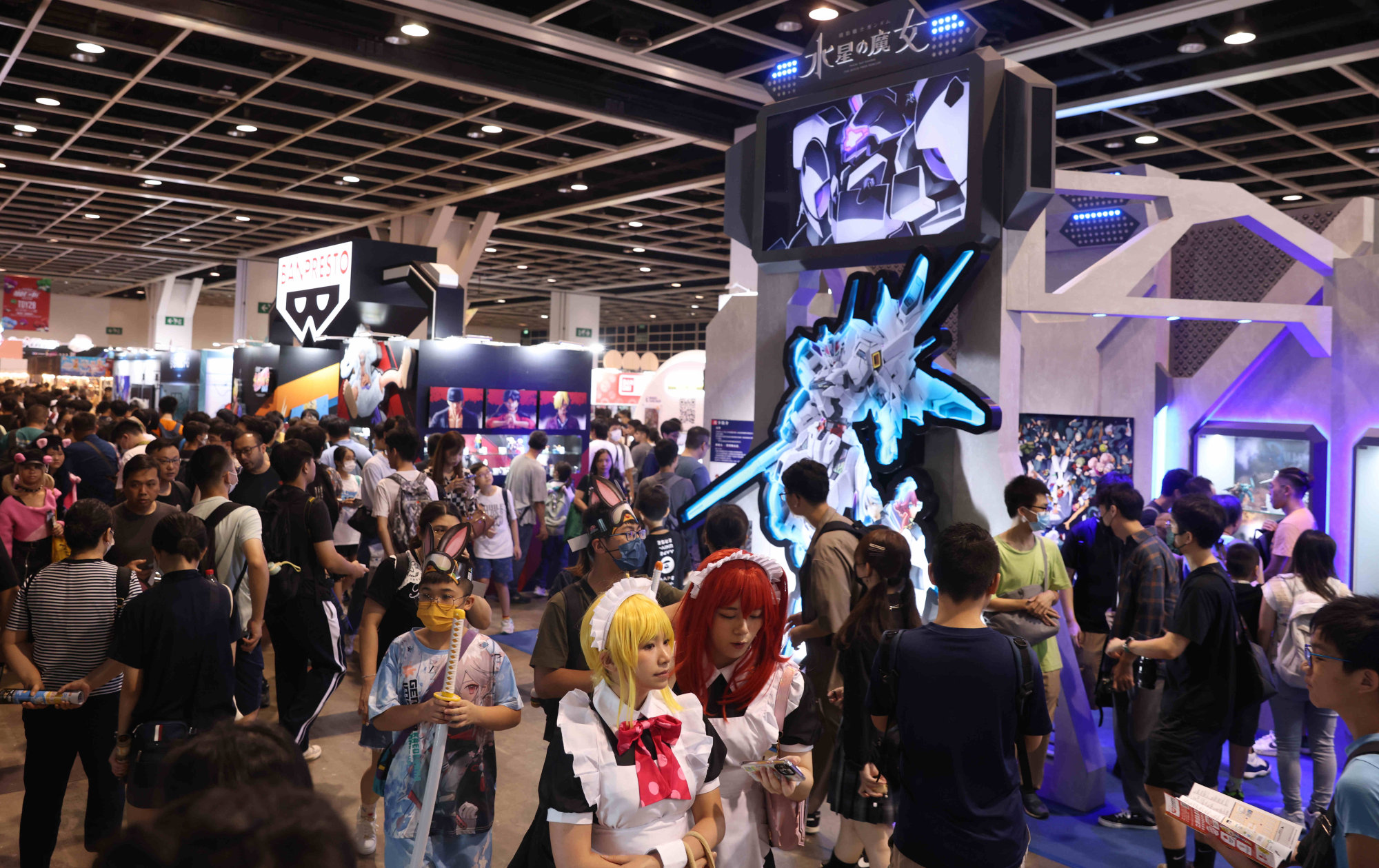
Hong Kong to launch night bazaars, organise more conferences and exhibitions to drive economic recovery, finance chief Paul Chan says
- Financial Secretary Paul Chan calls for improved competitiveness in tourism sector after government narrows full-year economic growth forecast
- Popularity of cultural and arts activities, as well as concerts and exhibitions, under the spotlight as authorities target new visitor habits
“Even though tourist arrivals are quickly recovering, we must seize the opportunity to promote the diversified, high value-added and sustainable development of the tourism industry, especially for large-scale events, international conferences and exhibitions that are crucial in attracting high-value tourists,” he said in his weekly blog.
Hong Kong’s June retail sales up 19.6 per cent, boosted by tourism and consumers
He emphasised that the government would work with a variety of sectors to organise the night bazaars to spur spending. Chan said private consumption and the tourism industry would still be the main drivers of growth in the second half of the year.
The government on Friday revised its GDP growth forecast to a range of 4 to 5 per cent for 2023, a shift from the previous target of between 3.5 and 5.5 per cent.
Second-quarter GDP growth hit 1.5 per cent year on year, tapering off from a 2.9 per cent increase in the first three months amid weak global demand and higher interest rates.
Chan said more tourists – especially younger ones – came for cultural and arts activities as well as concerts and exhibitions. He pointed to visitors from Southeast Asian countries who had attended the Ani-com and Games Hong Kong 2023 show in July.

Recovery was particularly strong for visitors from mainland China and Southeast Asian countries, with the number of tourists from across the border reaching about 70 per cent of pre-pandemic levels, he said. Countries in Southeast Asia, such as the Philippines, had already exceeded pre-pandemic levels.
About 3.6 million visitors came to Hong Kong in July, an average of 116,000 per day, a more than 30 per cent jump over the previous month.
The finance chief heralded major events such as the Hong Kong Wine & Dine Festival 2023 in October, Hong Kong Winterfest in November and Hong Kong Cyclothon in December.
Authorities have forked out HK$250 million in funding for the Tourism Board, the organiser of the events.
Other significant events include Asia Fruit Logistica 2023, a fresh fruit and vegetable marketing expo, in September and the return of Vinexpo Hong Kong, a wine and spirits trade show, in May next year.
Hong Kong revises economic forecast for city as weak global trade set to take toll
Chan said more sustained growth would be achieved by focusing on innovation and technology development, particularly artificial intelligence.
Former government minister Ceajer Chan Ka-keung, an adjunct professor at Hong Kong University of Science and Technology’s business school, said the city needed to polish a global image tarnished by the effects of the coronavirus pandemic and tensions between the United States and China.
“Despite expectations that the lifting of pandemic restrictions would lead to an influx of visitors and business growth in Hong Kong, the reality has proven otherwise,” the former financial services and treasury secretary told a radio programme on Sunday.
He said the city could allocate more resources and strive for better performance in the tourism sector by increasing promotions abroad as most visitors were from the mainland and the number of overseas travellers had significantly declined because of worsened Sino-US relations.
“Efforts should be made to attract more long-haul business travellers, including organising large-scale conferences and exhibitions to redirect attention to Hong Kong,” he said.
“It is important to identify which actions will improve our overall international image and reintroduce Hong Kong to the world.”

US President Joe Biden announced an executive order last week designed to impose limitations on American venture capital and private equity investments in Chinese companies operating in the fields of semiconductors and microelectronics, quantum information technologies and specific artificial intelligence systems.
Ceajer Chan said Hong Kong needed to redefine its development and economic positioning as worsening US-China relations made business more difficult, with American funds having grown more cautious, leading to a lack of capital from the country flowing into the city.
He said Hong Kong’s traditional reliance on four business pillars – financial services, trading and logistics, tourism and professional services – needed a rethink.
“Hong Kong’s current economic model is too narrow. Asia is set to be a crucial pillar for global economic development, and Hong Kong needs to collaborate with Southeast Asian countries to attract talent and investment,” he said.
The government could expand access to funds from other regions and assist high-quality mainland companies to list on the city’s stock exchange, he added.
He appealed to Hong Kong Exchanges and Clearing to prioritise improvements to its listing mechanism to provide more flexible and faster alternatives for companies.
“Hong Kong needs to energise the market and can play a role of providing an option for mainland enterprises seeking to raise funds,” he said.

